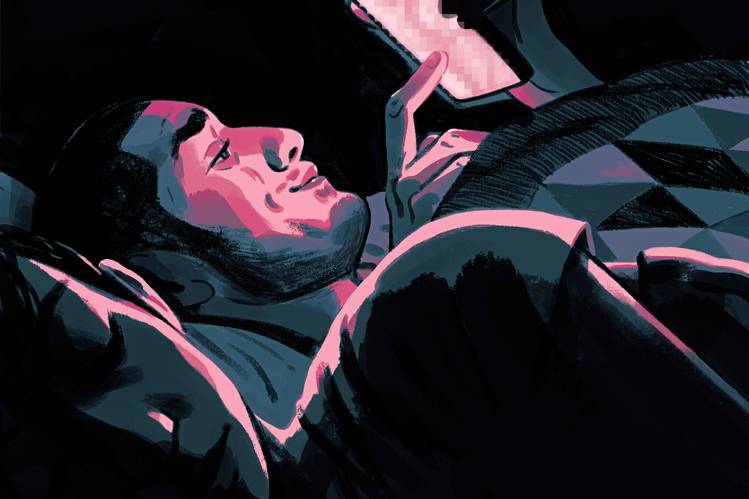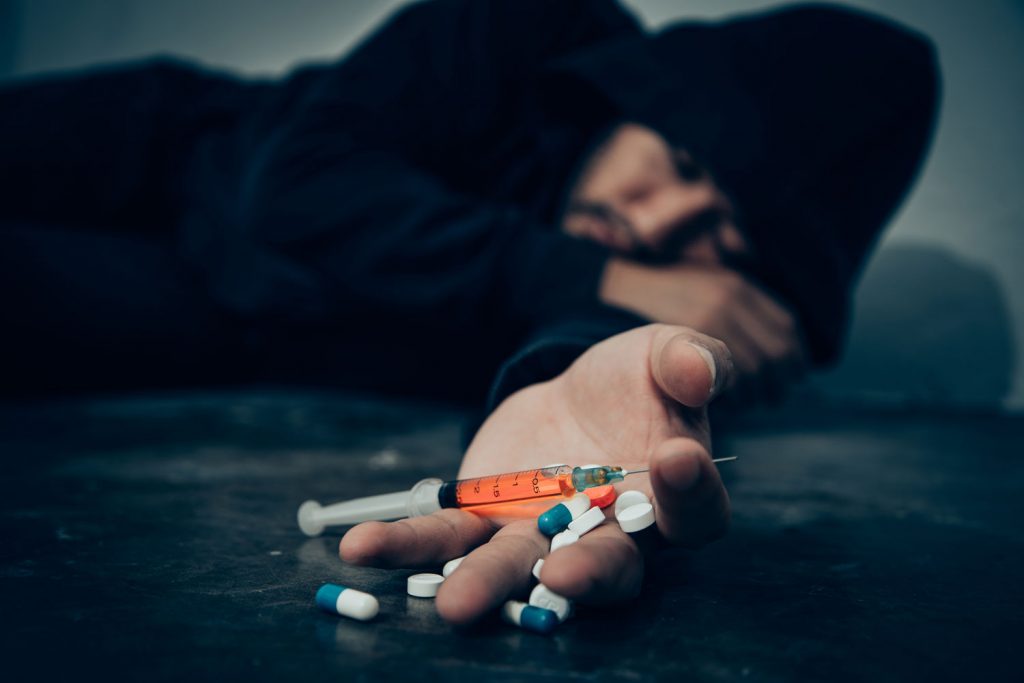Addiction doesn’t always come wrapped in bottles, pills, or needles. In fact, many forms of addiction manifest through behaviors that don’t involve ingesting any substance at all. These are known as behavioral addictions, and despite the absence of physical withdrawal symptoms, they can be just as destructive—emotionally, socially, and psychologically.
Behavioral addiction is marked not by chemical dependency, but by a compulsive urge to engage in a particular behavior even when it causes harm. Whether it's gambling, excessive shopping, or binge eating, the individual feels a temporary psychological reward—often described as a “high”—during the activity. But this is typically followed by shame, guilt, or a growing sense of loss. Without structured support or treatment, the person finds it nearly impossible to stop, even as their life unravels around them.
It’s important to remember that engaging in certain behaviors like shopping, exercising, or gaming doesn’t automatically mean someone is addicted. It becomes an addiction only when it ticks off some very specific boxes:
-
It creates mental or physical health issues: The person might suffer from anxiety, depression, or fatigue as a direct result of the behavior and their inability to control it.
-
It damages important relationships: Addictive behaviors can strain connections with family, friends, and colleagues. A once-loving home can quickly turn into a battlefield.
-
It leads to serious consequences: Whether it's blowing through savings on online gambling or being fired for skipping work to binge-watch games, these behaviors have real-world repercussions.
-
There’s no stopping, despite the fallout: This is perhaps the hallmark of addiction. Even as life crumbles, the urge wins—again and again.
If you or someone close to you is facing these struggles, there is hope. Treatment options are available and can be incredibly effective. Behavioral therapies, counseling, support groups, and sometimes medication form a comprehensive approach to regaining control and rebuilding life.
Why Do Some Habits Become Addictions?
We make thousands of micro-decisions every day, from what to eat to when to sleep. Most of these are harmless, guided by reason or instinct. For example, if you're hungry, you might grab a healthy snack to feel better and stay energized. But imagine reaching for a bag of chips when you’re not hungry at all—and doing it again and again, even when it makes you feel miserable afterward. That’s where the line starts to blur between habit and addiction.
Behavioral addictions arise when certain activities that normally bring enjoyment begin to take over our lives. They stop being choices and start becoming compulsions. Even when they damage our health, destroy relationships, or drain finances, we still can’t stop. It’s not about poor willpower or lack of self-discipline. If it were that simple, the problem would have fixed itself long ago.
Not everyone agrees on what should be classified as a behavioral addiction. Some critics argue that labeling these behaviors as addictions removes personal responsibility. But here's the reality: people dealing with behavioral addictions often want to stop. They try. They fail. And they suffer through the guilt and shame that comes with that cycle—over and over again.
“Whether or not any behavior can become an addiction that is harmful to a person’s ability to function is still open to debate. What we do know is that there are several behaviors that are commonly reported as occurring at an addiction level, wreaking havoc and destroying lives for as long as they remain untreated.”
8 Well-Known Behavioral Addictions
Although not every mental health professional agrees on what qualifies as a full-blown behavioral addiction, there’s growing consensus that some behaviors cross a line. Below are eight commonly recognized behaviors that can become addictive and destructive when left unchecked.
Gambling Obsession
Of all behavioral addictions, gambling bears the closest resemblance to traditional substance abuse disorders. In fact, the American Psychiatric Association (APA) officially recognizes gambling disorder as a clinical addiction. What’s striking is how brain imaging studies show that gambling stimulates the same neural reward circuits as drugs and alcohol.
Gambling addiction doesn't just mean hitting the casino every weekend. It can include sports betting, online poker, slot machines, lottery tickets—anything where risk and reward are involved. What begins as innocent entertainment can evolve into a full-blown compulsion that wrecks financial stability and personal relationships.
Treatment for gambling addiction often mirrors that of substance abuse. Cognitive-behavioral therapy (CBT), group support like Gamblers Anonymous, and financial counseling are all effective tools.

The Struggle With Sexual Compulsion
Sex addiction is controversial, but very real for those who experience it. It's not officially listed in the Diagnostic and Statistical Manual of Mental Disorders (DSM-5), although it was once proposed under the term hypersexual disorder. Despite this, many therapists treat it as an addiction due to the compulsive nature of the behavior and the serious consequences that often follow.
What makes sex addiction challenging is the overlap between normal desire and compulsive need. People struggling with this form of behavioral addiction often exhibit risky sexual behavior, secrecy, and a disregard for personal safety or emotional well-being. They may pursue increasingly extreme experiences to achieve the same level of gratification, leading to a downward spiral.
Twelve-step programs like Sex Addicts Anonymous and targeted therapy can offer paths to recovery, helping individuals learn healthy intimacy, manage impulses, and repair damaged relationships.
Internet Use That Spirals Out of Control
We live in a digital age where being “plugged in” is the norm. But for some people, screen time morphs into a dangerous dependency. Internet addiction isn’t yet a recognized disorder in most diagnostic manuals, but mounting research says it should be.
This type of addiction may involve compulsive web browsing, excessive use of social media, gaming, or even endless streaming. People suffering from this condition often lose track of time, neglect responsibilities, and experience irritability or depression when offline.
One particularly revealing study presented at the American Psychiatric Association showed that heavy internet use actually causes brain structure changes similar to those seen in substance addiction. Some individuals report spending 10–12 hours a day online, often at the expense of sleep, nutrition, and real-life relationships.
Treatment can include digital detox programs, therapy, and mindfulness-based practices to help restore balance between virtual and real-world living.
Shopping Compulsion: When Spending Becomes a Problem
The thrill of buying something new is a pleasure many people know well. But for those dealing with compulsive shopping, also called oniomania, the act of spending becomes an emotional crutch. It’s not about the item purchased—it’s about the rush of the transaction, the temporary escape it offers.
People with this addiction often shop to relieve stress, cope with anxiety, or fill a void of loneliness. Unfortunately, that high is short-lived. Once the credit card bill arrives or the closets overflow with untouched items, guilt, shame, and financial trouble take over. It’s a dangerous cycle that’s hard to break.
Unlike planned or occasional indulgent purchases, compulsive shoppers feel unable to stop themselves. They may hide purchases from loved ones, lie about spending, or max out credit cards to chase the same emotional reward.
Therapy, particularly cognitive-behavioral therapy (CBT), can help individuals recognize the underlying emotions tied to their shopping habits. Support groups like Debtors Anonymous also provide valuable peer support and accountability.

Obsession With Cosmetic Procedures
Plastic surgery addiction may sound like an exaggeration, but it's a real and growing concern—especially in a culture dominated by social media filters and unrealistic beauty standards. Some individuals become so obsessed with altering their appearance that they undergo procedure after procedure, often with dangerous outcomes.
This behavior is frequently linked to body dysmorphic disorder (BDD)—a mental health condition where individuals become fixated on perceived flaws in their appearance. Despite repeated surgeries, the person never feels satisfied. Instead, they’re left chasing an unattainable ideal, often putting their physical and emotional well-being at risk.
Doctors sometimes find themselves in the difficult position of refusing to perform more procedures, recognizing the psychological roots of the compulsion. Recovery involves working with therapists who specialize in body image, self-esteem, and anxiety.
It's worth noting that cosmetic surgery itself is not inherently addictive. But when it becomes a means of emotional escape or self-worth validation, it can spiral into a behavioral addiction that’s just as harmful as any other.
Video Game Dependency
Gaming is one of the most popular pastimes across all age groups. But for some, especially adolescents and young adults, gaming stops being fun and starts taking over their lives. The World Health Organization (WHO) has officially recognized gaming disorder as a diagnosable condition, characterized by impaired control, prioritizing gaming over other activities, and continuation despite negative consequences.
This form of addiction often results in disrupted sleep, poor academic or job performance, and social isolation. In extreme cases, individuals play for days without eating or sleeping properly. The compulsion often centers around online multiplayer games, where social validation and reward systems are baked into the experience.
Parental controls, scheduled screen breaks, and supervised therapy programs are among the tools used to treat gaming addiction. Treatment often involves helping individuals rediscover joy in real-world interactions and activities, along with learning time management and impulse control.
Binge Eating and Food Obsession
Food is a necessity, but for some, eating transforms into a behavior they feel powerless to control. Binge eating disorder (BED) is the most common eating disorder in the U.S. and is now recognized as a serious medical and psychological condition.
People who struggle with food addiction often eat in secret, feel a lack of control, and continue consuming large quantities even when they’re not hungry or are already physically full. Episodes are usually followed by intense shame or guilt, and often occur during emotional distress.
What sets this apart from regular overeating is not just the frequency or volume—it’s the compulsive nature of the act and the emotional pain tied to it. Over time, the consequences can include obesity, diabetes, and heart disease, alongside severe depression or anxiety.
Therapy, especially dialectical behavior therapy (DBT) and nutritional counseling, can help individuals understand their triggers, manage emotions, and rebuild a healthier relationship with food. Support groups like Overeaters Anonymous also offer community-based recovery systems.

Risk-Taking Behavior: The Addiction to Adrenaline
Some people are addicted to risk itself. Whether it’s extreme sports, reckless driving, or engaging in dangerous sexual behavior, these individuals chase the euphoric spike of adrenaline that comes from putting themselves on the line. Known informally as risk addiction, this pattern can be deeply destructive.
Psychologists believe this addiction is tied to the brain’s reward system—particularly the release of dopamine and adrenaline during high-stress or high-risk situations. Over time, just like with substance abuse, the person craves more intense and frequent doses of excitement to feel the same thrill.
This behavior often leads to legal trouble, injury, broken relationships, or worse. And yet, even after experiencing serious consequences, the compulsion to take risks remains strong.
Treatment focuses on identifying the emotional needs being met through risk-taking and replacing them with healthier, more sustainable sources of fulfillment. This could include exercise, therapy, creative outlets, or even safer forms of adrenaline-based activity under structured conditions.
Closing Thoughts on Behavioral Addictions
Behavioral addictions are complex, often invisible, and widely misunderstood. They can take many forms, but they all share a common thread: a pattern of compulsive behavior that brings temporary relief but long-term harm. These addictions can devastate lives, even without a single drop of alcohol or a pill bottle in sight.
The good news is, help is out there. Recovery is possible—with the right support, compassionate care, and the courage to face uncomfortable truths, people can break free from these patterns and regain control of their lives.
If you or someone you know is struggling with any of the behaviors described above, don’t wait. The earlier these patterns are addressed, the better the chances of healing and reclaiming a balanced, meaningful life.











